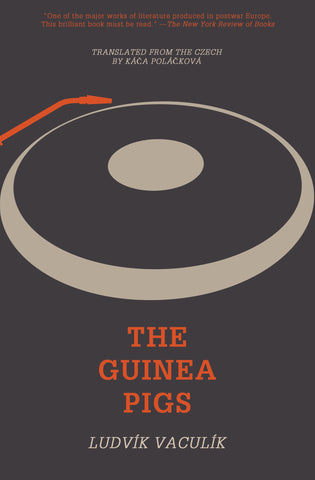The Guinea Pigs
$13.95
May 17, 2011
novel | pb | 167 pgs
5.5" x 8.5"
978-1-934824-34-4
"One of the major works of literature produced in postwar Europe. This brilliant book must be read."
—New York Review of Books
A clerk at the State Bank begins to notice that something strange is going on— bank employees are stuffing their pockets with money every day, only to have it taken every evening by the security guards who search the employees and confiscate the cash. But, there’s a discrepancy between what is being confiscated and what is being returned to the bank, and our hero is beginning to fear that a secret circulation is developing, one that could undermine the whole economy.
Meanwhile, the clerk and his family begin to keep guinea pigs, and at night, when everyone is asleep, our hero begins to conduct experiments with the pets, teaching them tricks, testing their intelligence and endurance, and using some rather questionable methods to encourage the animals to befriend him.
Ludvík Vaculík’s The Guinea Pigs is one of the most important literary works of the twentieth century. Vaculík owes much to Kafka, his fellow countryman, but he had direct experience of the oppressive absurdity that lived in Kafka’s imagination, which here is expressed with an ironic and knowingly innocent Czech smile.
Translated from the Czech by Kača Poláčková
•
About the Author: Ludvík Vaculík was born in 1926 in Brumov, Czechoslovakia. His novels The Axe and The Guinea Pigs and the essays collected in A Cup of Coffee with My Interrogator established his international reputation. One of the leading literary figures during the Prague Spring of 1968, his manifesto The Two Thousand Words led to his banishment from the Communist Party, the censorship of his writing, and decades of persecution; it also contributed to the Soviet invasion of Czechoslovakia in August 1968. From 1973–1989, he ran a samizdat publishing house, Padlock Editions, which printed and distributed over 400 banned titles.
•
"The extraordinary adventures of a petty bank clerk, of his guinea pigs, his family, and his weird superiors are all shrouded in an eerie conviviality which chills the reader."
—Antonin J. Liehm

